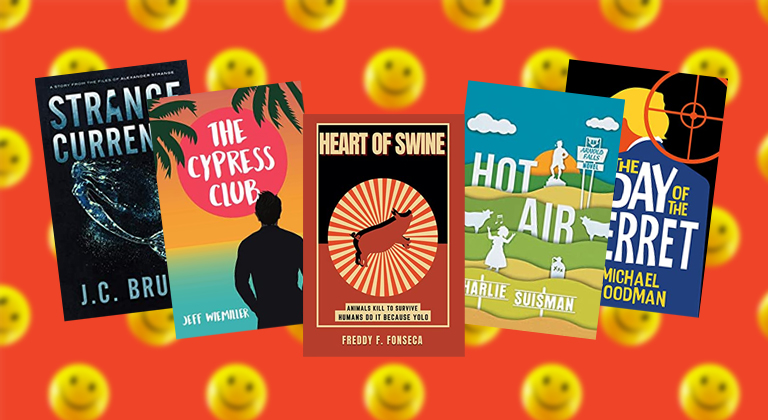What Makes a Good Book Review?
At Hidden Gems, book reviews are what we’re all about – and although we aren’t writing them ourselves, we’ve seen enough from our readers, and heard from enough authors, to have a pretty good idea about what makes a good book review.
If you’re one of our ARC reviewers, or even if you’re reviewing on your own or for someone else, here are a few ideas on what authors are looking for, how to be fair, etiquette, and just overall tips for writing a helpful review.
No One-Line Book Reviews
As much as an author loves to hear that you “Loved this book!”, that’s not really a review. While your opinion is important to helping support the author, it’s a lot more helpful when it is more detailed in regards to the particular book being reviewed.
A one-line review might also look fake to other readers, or even Amazon. Especially when the other reviews in the reader’s profile are also a bunch of one or two-liners. It may lead to questions about whether that reader is actually reading any of the books at all, especially if each of those reviews are similar – and let’s face it, how different can they really be if they’re only a line or two?
Each story you read is unique, so each book review should be unique as well. That’s much easier to do if you’re going into some detail about each particular book.
What should you write about?
Here are a few ideas to get your wheels turning, but it’s certainly not a complete list.
- Did you connect with the characters, or did they seem flat or one-dimensional?
- Did the story work? Did the plot get resolved? Did everything make sense or were you left confused?
- Did the story grab you? Hook you in from page one and keep you locked in until the end?
- Each genre may have its own specific set of questions. For example…
- Mystery: Did it keep you guessing?
- Romance or Erotica: Did it bring the heat?
- Thriller: Did it keep you on the edge of your seat?
- Also remember to keep your language clean! Note that anyone might be reading your review, so please try to keep your language clean even if the book isn’t. If for no other reason than Amazon will often block reviews that even have a single expletive.
No one is asking for you to write a book report or a really long review – you can still keep it short, but even if you only write a few sentences, the important thing is to actually tell people what you thought about this particular book – whether you liked it or not.
If Leaving a Negative Book Review, Be Constructive
Yes, it’s okay to leave negative reviews for a book you didn’t like, just remember not to be nasty about it, and the same rule as above applies. “I hated this book” isn’t a review that helps anyone and if that’s all you can say about a book, then sometimes it might not be better to leave any review at all. Remember, there is a difference between a bad review, and a “bad” review.
Authors are people too, and they spent a lot of time working on this story. If it didn’t connect with you, that’s fine – even the best pieces of literature in the world have some people that didn’t like them – but try to make your review constructive. What didn’t you like about it? What fell flat or confused you about the story? If your bad feelings about the book come from some sort of personal issue you had with the subject matter, feel free to mention that so that anyone else reading your review can take that into account. Maybe that issue would put them off as well – or maybe they’ll recognize that what bothered you wouldn’t have bothered them and thus might give the book a try anyway.
Remember, the purpose of leaving a review is typically for other readers of the book to help them evaluate whether or not they would like the book themselves – so the more you can say about your own experience when reading, the more helpful it will be for them and their decision.
And a constructively written negative review can help the writer, as well. If a bunch of reviews come in saying the same thing – that the plot was confusing, for example, then an introspective writer will see that as a point to consider improving in their next book. You’re not only helping people decide whether to read the book, but helping the author improve their craft.
Book Reviews Should Be Spoiler Free
Whether your review is positive or negative, no one likes the book to be ruined for them. Keep important plot details to a minimum and don’t give anything away. A review shouldn’t be a book report going into everything that happened, but rather more about your feelings in general about different aspects or characters. If you think something MIGHT be important to the plot but aren’t sure, either don’t include it or at the very least, mark the review as having spoilers.
Consistency and Fairness Within Book Reviews
Nothing is more confusing to both the author and other potential readers than a review that goes on and on about how great a book is, but then gives it only 2 or 3 stars. If a book is great, then don’t be afraid to give it high marks in your rating. Or if you feel like a book deserves a lower grade, then make sure to discuss why. If you’re worried about hurting the author’s feelings or don’t like to write anything negative, then it’s sometimes better not to leave a review at all. That’s perfectly fine – and at Hidden Gems, we even have a spot for that on our forms (Reason for not reviewing). Leaving a review is always voluntary.
Which is also an important point to remember if you didn’t even finish reading the book. If you couldn’t connect enough with a book to even complete it, then you probably shouldn’t even review it since you didn’t give it a fair enough chance. This is especially true if you only gave it a few pages or a couple chapters.
Mention That You Got a FREE Copy
The FTC requires that you disclose that you got a book (or any product) for free if you are reviewing it, so it’s important to note that in your review.
The idea behind this is one of transparency, so that reviewers know that you were given a free copy and they can decide for themselves whether they think this might have any influence over your review. This is another reason to make sure each of your reviews is unique and detailed enough that readers can tell that you’ve actually read the book.
Just be careful in how you word it so you don’t break any of Amazon’s rules. For instance, while Amazon does allow reviews to be written on books you got for free, those reviews shouldn’t be given in exchange or in return for the book. That’s why we provide the reason for not reviewing field on your form.
NOT ALLOWED: “I was sent a free book in exchange for writing this honest review.”
ALLOWED: “I was sent a free book and am voluntarily leaving this honest review.”
It’s a subtle but important difference, so while you should add that disclosure in your own words, just be careful in how you phrase it.










